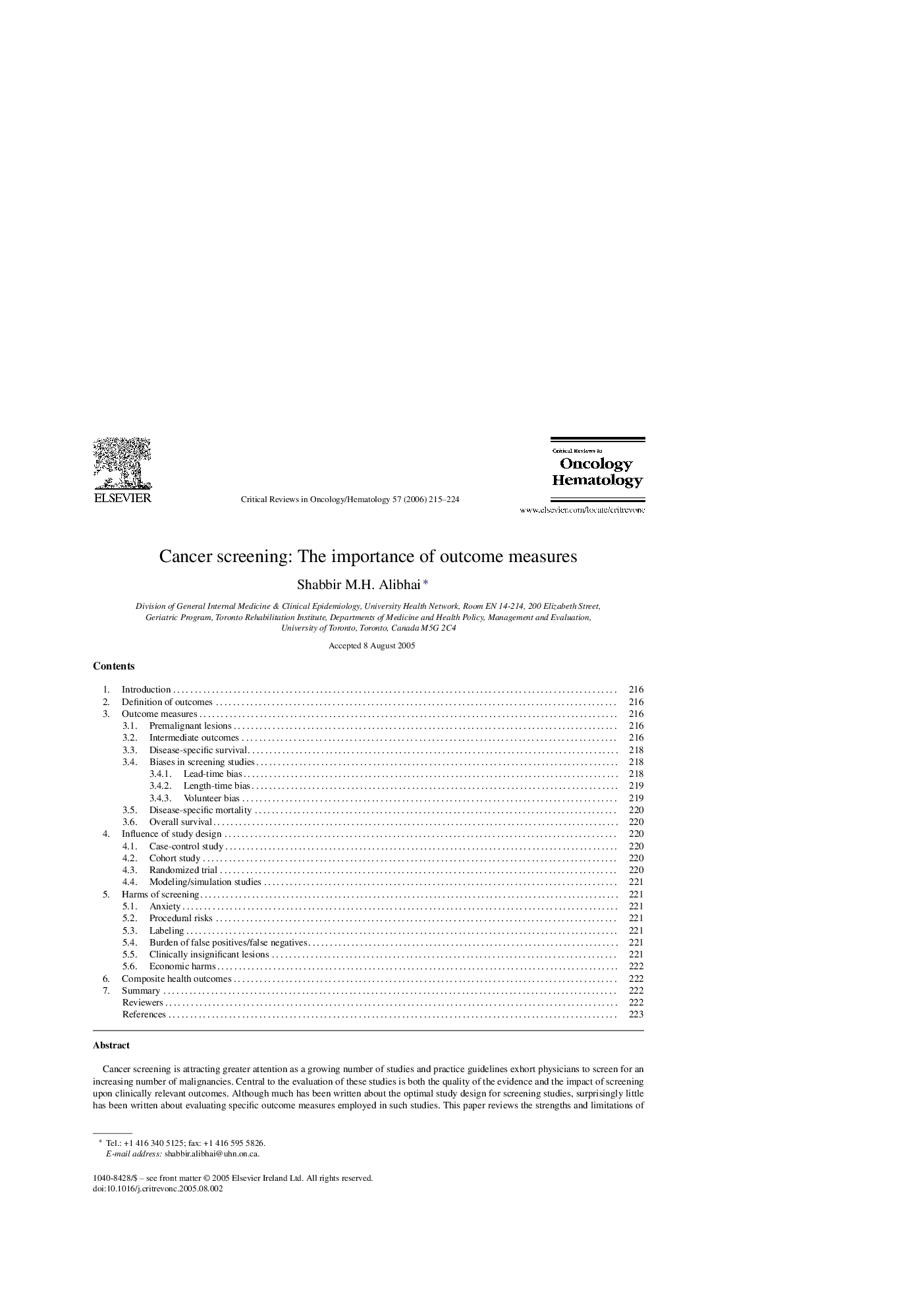| Article ID | Journal | Published Year | Pages | File Type |
|---|---|---|---|---|
| 3330478 | Critical Reviews in Oncology/Hematology | 2006 | 10 Pages |
Cancer screening is attracting greater attention as a growing number of studies and practice guidelines exhort physicians to screen for an increasing number of malignancies. Central to the evaluation of these studies is both the quality of the evidence and the impact of screening upon clinically relevant outcomes. Although much has been written about the optimal study design for screening studies, surprisingly little has been written about evaluating specific outcome measures employed in such studies. This paper reviews the strengths and limitations of common outcomes employed in cancer screening studies. The relationship between study design and outcome measure is explored. Three key biases (lead-time, length-time, and volunteer) associated with screening studies and methods to minimize them are also reviewed. Potential harms associated with screening are outlined. Although disease-specific mortality may be the most robust and relevant traditional outcome measure, increasing attention is being paid to composite health outcome measures for older populations, including quality of life and cost-based measures.
